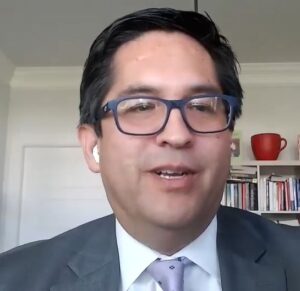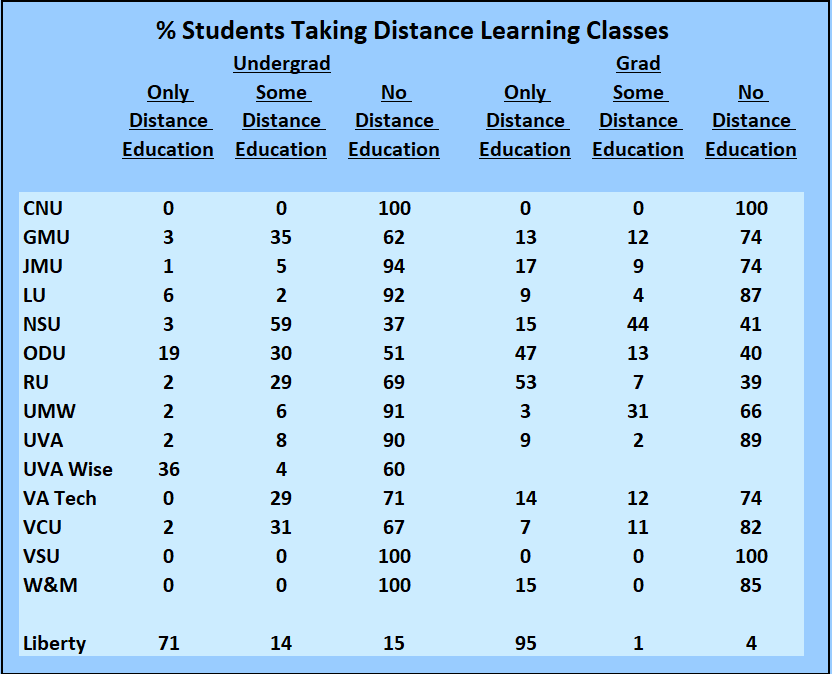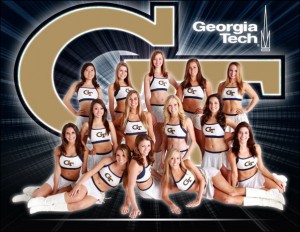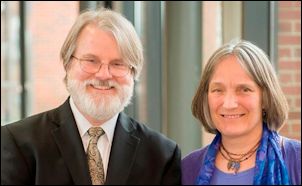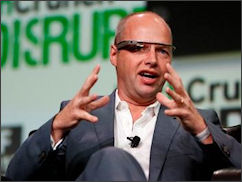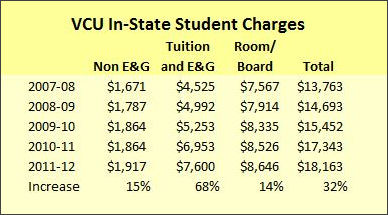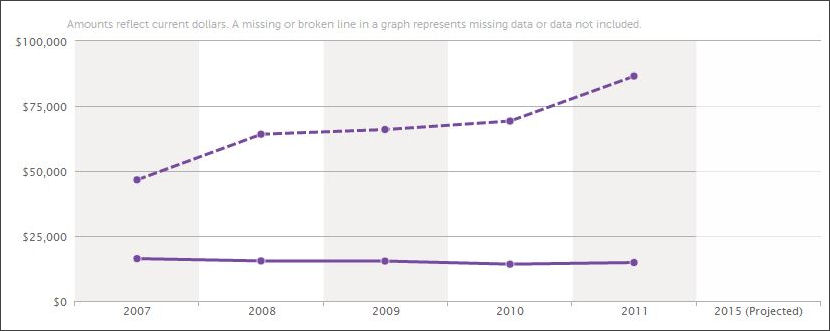
Online learning at Old Dominion University, a key participant in the Virginia Online Network.
Several years ago when Del. Kirk Cox, R-Colonial Heights, was still teaching high school government classes in Chesterfield County and serving as majority leader in the House of Delegates, he had to take a continuing-education course to get his teaching re-certification.
“I went, wow, my schedule was crazy. There was no way I could get to a class,” he recalls. “I was swamped teaching and doing the majority leader thing.”
Cox’s salvation was online learning. Finding time to study at night, he managed to complete his re-certification requirements. Likewise, his wife Julie earned a Master’s degree in crisis counseling through an online course delivered by Liberty University. Having seen the advantages of online learning close-up, he has become a big believer. He sees the online learning as a big part of the higher-ed future, and he wants Virginia’s public institutions to get more involved.

Kirk Cox. (Photo credit: Roanoke Times.)
Cox took the legislative lead in 2015 to create the Online Virginia Network (OVN), a portal delivering online courses from Old Dominion University, George Mason University, and other public Virginia institutions that develop online capabilities. The portal, which targets 1.1 million Virginians who have taken some college courses but not completed their degree, has its debut this fall semester. Last time he checked, says Cox, OVN was on track to meet its target enrollment of 225 students.
“My immediate target with the OVN is adult learners with some college credit,” says Cox. “Military guys. Working moms. A four-year degree would be extremely beneficial for them.”
As he knows from personal experience, it’s not easy for working people to return to school. The dominant educational model offers classes at set times during the day, typically on a Tuesday-Thursday or a Monday-Wednesday-Friday schedule. “If you’re working, that’s tough,” says Cox. “We want to make it easier for these folks to come back and help them get a higher-paying job.”
Private schools — including Liberty University, which Cox says, has “eaten our lunch in the online space” — offer online courses as well. But tuition at Virginia institutions, subsidized by the state, is more affordable. Previously, students could enroll in either ODU or GMU’s online programs, but they were restricted to the course offerings of each individual institution. With OVN, they will be able to mix and match courses from both institutions, as well as from colleges and community colleges that join the consortium in the future.
“The portal brings all the online programs together in one place,” says Tony Maggio, a fiscal analyst for the House Appropriations Committee. “The programs themselves will reside in the host institutions. A degree program could come from multiple providers. The experience will be seamless from the student’s perspective.”
OVN funding will provide counselors to help students navigate the system as well as a net cost calculator to help evaluate the most efficient path forward.
The program works nicely for ODU and GMU as well.
“It’s a natural connection,” says Dr. Ellen J. Neufeldt, vice president of student engagement and enrollment services at ODU, which operates the largest online program of any public university in Virginia. About 20% of ODU’s students, many of them in the military, are already online.
“The Online Virginia Network initiative aligns with our mission of affordability and access and has influenced the way Mason serves undergraduate students online,” says Robin Rose Parker, a director for strategic engagement & communications AT GMU. “This complements our online efforts at the graduate level and helps us leverage the online model to reach many more potential students. In fact, OVN has provided Mason with the opportunity to further target a key segment in Virginia — the adult learner — an increasingly significant part of the community we serve.”
The present incarnation of OVN is just the beginning. Building the network is Cox’s number one higher-ed priority in the 2018 session, which, given the fact that he is the newly elected Speaker of the House, means it will be a top priority of the House of Delegates.
Cox says he hopes to find ways to wring out costs of online attendance. Why, he asks, should online students be charged student activity and athletic fees? Is there a way for online students to share instructional materials rather than pay thousands of dollars for textbooks? Can classes be structured so that super-popular instructors can reach more students?
He also will work to coax other Virginia higher-ed institutions into participating in the network. In his view, there’s more at stake than helping students earn college degrees, as important as that is. The educational industry is changing, and Virginia’s public universities need to get a foothold online to adapt.
With their big endowments and deep alumni bases, the University of Virginia and Virginia Tech may not have to change their residential-college model, Cox says. But he’s convinced that the high-cost, high-tuition model at most institutions is unsustainable.
“If you’re not innovative — if you’re not holding costs down — you’re going to be in trouble,” Cox says. “For the viability of our public institutions, they’ve got to be in that space.”
